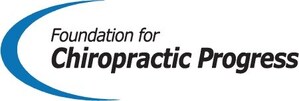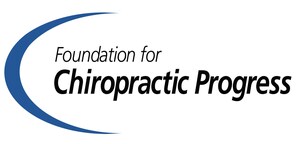SAN JOSE, Calif., Aug. 25, 2020 /PRNewswire/ -- To commemorate National Drug-Free Pain Management Awareness Month, the Foundation for Chiropractic Progress (F4CP) announced today the release of a new eBook, Chiropractic Care: An Effective, Drug-Free, First-Line Approach To Pain. The eBook is available on its website along with other educational resources for healthcare professionals and caregivers.
The eBook is an evidence-based overview for a variety of healthcare professionals from medical doctors to nurses, to learn more about chiropractic care and to draw attention to the numerous materials available on the F4CP website such as infographics, tip sheets, presentations, articles as well as research compiled from medical and scientific publications. The eBook release coincides with National Drug-Free Pain Management Awareness Month, which occurs every September to raise public awareness about the dangers of prescription and over-the-counter pain medications.
"The Foundation for Chiropractic Progress sponsors September as National Drug-Free Pain Management Awareness Month each year to draw attention to dangers of pain medications, but more importantly to the many benefits of chiropractic and other types of non-pharmacologic care," said Sherry McAllister, DC, executive vice president of F4CP. "Our new eBook explores the pain relief, mobility, athletic performance and quality-of-life benefits in greater detail and is an excellent resource for any type of provider designing safe and effective pain management plans for their patients."
Evidence-Based Outcomes
The eBook opens by describing how opioids continue to be prescribed although they are often an ineffective and hazardous solution to the pain management challenges facing the U.S. amidst this crisis, chiropractic care is emerging as a patient-preferred, evidence-based, first-line care approach across the globe.
After describing chiropractic care and its benefits, the eBook details some of the recently published evidence supporting the practice and how clinical guidelines have been updated to recommend the care as a first-line pain management option. Increasingly, the book points out, doctors of chiropractic (DCs) are being included as members of collaborative, multidisciplinary care teams.
"Providers that employ a broad range of evidence-informed therapies in pain management practice, including clinical nutrition, targeted dietary supplements, herbal medicines, physical medicine and counseling are essential as part of a first-line, team-based approach to patients in pain," said Michelle Simon Ph.D., ND, president and CEO, Institute for Natural Medicine.
Access and Affordability Issues
The eBook also delves into economic issues, such as how chiropractic care is typically less costly than pharmacologic approaches for pain management. Yet major health insurers, including the Centers for Medicare and Medicaid Services, have placed access obstacles in patients' way, such as limiting benefits and charging higher co-pays.
"Access to chiropractors within an integrated primary care program is invaluable for cost control, improves health outcomes and makes a massive impact on the amount of opioids used for pain management," said Daniel Lord, DC, physical medicine senior program manager at Crossover, an employer health and wellness clinic provider. "Our published research has found that our integrated team prescribed opioids 2.8% of the time, compared to 20% at community clinics." Dr. Lord's research, "Integrated Physical Medicine at Employer-Sponsored Health Clinics Improves Quality of Care at Reduced Cost," which appeared in the May 1, 2019 edition of the Journal of Occupational and Environmental Medicine, echoes findings highlighted in the eBook.
The eBook concludes with recommendations to improve patients' access to drug-free pain management care, such as chiropractic, through changes such as health plan policy updates across government and commercial payers and educating providers and patients. Such changes are needed to help patients access the safer, more effective care to manage their pain today, but also to support younger generations' understanding of the dangers of opioids and how their current behaviors and decisions affect their health for years to come.
"Children need consistent and developmentally appropriate opportunities to practice the skills to make healthy choices," said Kevin Lorson, professor, Health & Physical Education at Wright State University and developer of the Health and Opioid Abuse Prevention Education (HOPE) Curriculum. "The HOPE Curriculum is one opportunity for students to practice skills such as communication, decision-making, and advocacy. These skills can be practiced and reinforced at home, school and in the community to empower youth to make healthy choices throughout their life."
The Future of Healthcare
Informing and protecting children and youth from prescription opioids, as well as the spiral of misuse and addiction, was one of the goals of designating a month focused on drug-free pain management, which became officially recognized in 2017.
"Whether readers deliver care for children, adults or seniors, or all of the above, they are certain to learn valuable information from this concise, but deeply researched, eBook," said Dr. McAllister. "We hope its contents persuade more progressive healthcare professionals to collaborate with doctors of chiropractic to help their patients achieve the optimal pain management outcomes and overall improved well-being associated with our care."
About the Foundation for Chiropractic Progress
A not-for-profit organization, the Foundation for Chiropractic Progress (F4CP) informs and educates the general public about the value of chiropractic care and its role in drug-free pain management. Visit www.f4cp.org; call 866-901-F4CP (3427).
SOURCE Foundation for Chiropractic Progress

Related Links
WANT YOUR COMPANY'S NEWS FEATURED ON PRNEWSWIRE.COM?
Newsrooms &
Influencers
Digital Media
Outlets
Journalists
Opted In






Share this article